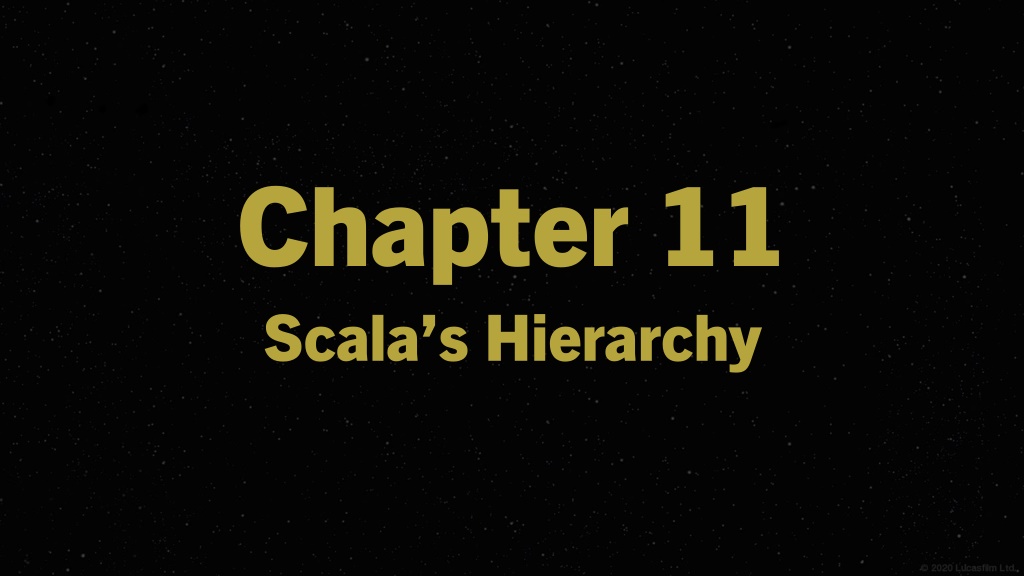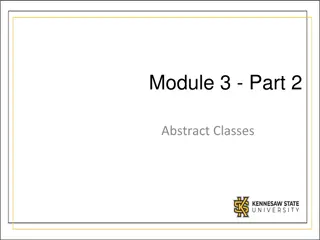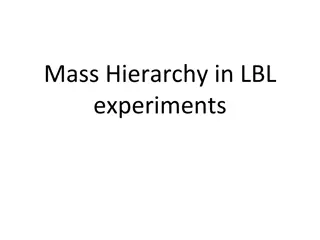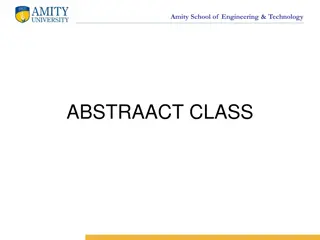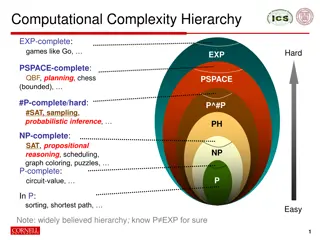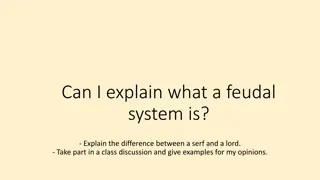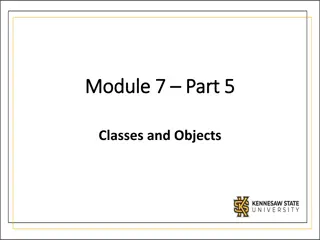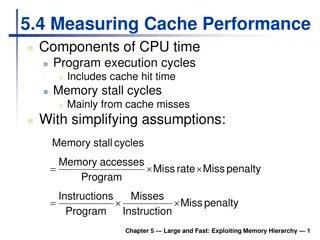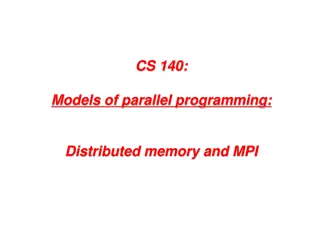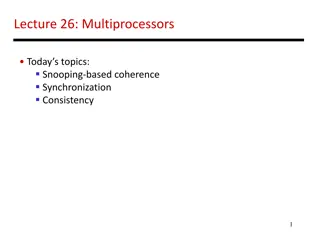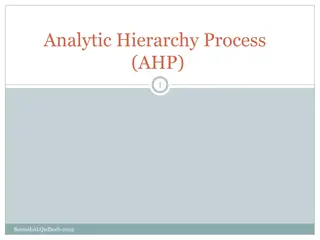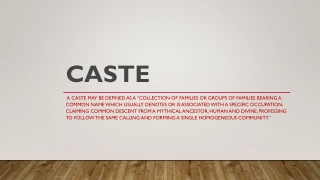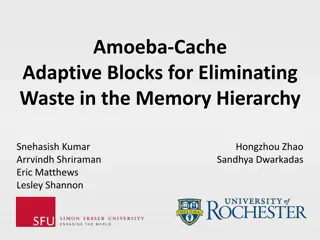Understanding Scala's Class Hierarchy and Value Classes
Scala's class hierarchy includes Any, AnyVal, and AnyRef classes, with implicit conversions and implementations of primitives similar to Java. Learn about defining value classes, natural and reference equality comparisons, and more in Scala programming.
Download Presentation

Please find below an Image/Link to download the presentation.
The content on the website is provided AS IS for your information and personal use only. It may not be sold, licensed, or shared on other websites without obtaining consent from the author. Download presentation by click this link. If you encounter any issues during the download, it is possible that the publisher has removed the file from their server.
E N D
Presentation Transcript
Chapter 11 Scala s Hierarchy
Chapter 11 Class Hierarchy Primitive Implementation Bottom Types Define Your Own Value Classes
Scalas Class Hierarchy Class Any - Root of the class hierarchy final def ==(that: Any): Boolean final def !=(that: Any): Boolean - Some of its methods are def equals(that: Any): Boolean def ##: Int def hashCode: Int def toString: String
AnyVal - Subclass of Any - Parent class of value classes - Byte - Long - Unit - Short - Float - Double - Char - Int - Boolean
Implicit Conversions - Exist between value class types - Applied whenever it s necessary
Example 42 max 43 42 min 43 1 until 5 1 to 5 3.abs (-3).abs Int RichInt
AnyRef - Root class of all reference classes - Same as Object class in Java - Can use Object and AnyRef - Don t do it
How Primitives Are Implemented - Similar to Java - Except there is one difference - Boxing
Java boolean isEqual(int x, int y) { return x == y; } System.out.println(isEqual(421, 421)); boolean isEqual(Integer x, Integer y) { return x == y; } System.out.println(isEqual(421, 421));
Scala def isEqual(x: Int, y: Int) = x == y isEqual(421, 421) def isEqual(x: Any, y: Any) = x == y isEqual(421, 421)
Java String x = twin ; String y = twin ; System.out.println(x == y); - Compares reference equality
Scala val x = twin val y = twin println(x == y) - Compares natural equality
eq and ne - Behave like Java s == and != val x = twin val y = twin println(x eq y) //false println(x ne y) //true
Bottom Types - Two classes at the bottom of Scala s hierarchy: - Null - Nothing
Null Class - Type of the null reference - Not friendly with value types I don t like you Null Int
Nothing Class - There is no values of type Nothing Why does Nothing exist? - It can be used to signal a wacky termination
Example def error(message: String): Nothing = throw new RuntimeException(message) def cutestAnimal(animal: String): String = if(animal == Cat ) println( You re right ) else sys.error( You re wrong )
Defining Your Own Value Classes - Your class will need: - Exactly one parameter - Must be empty except for defs - Should not redefine equals or hashCode
Value class class Cats(val number: Int) extends AnyVal { override def toString() = amount + cats } val cats = new Cats(20) println(cats) //prints 20 cats
Avoiding a types monoculture - Let the compiler help you - Define a new class for every domain concept - Things can get messy if you don t
HTML Example def title(text: String, anchor: String, style: String): String = s"<a id='$anchor'><h1 class='$style'>$text</h1></a>" title("chap:vcls", "bold", "Value Classes") - Let the compiler help you
class Anchor(val value: String) extends AnyVal class Style(val value: String) extends AnyVal class Text(val value: String) extends AnyVal class Html(val value: String) extends AnyVal def title(text: Text, anchor: Anchor, style: Style): Html = new Html( s"<a id='${anchor.value}'>" + s"<h1 class='${style.value}'>" + text.value + "</h1></a>" )
title(new Anchor("chap:vcls"), new Style("bold"), new Text("Value Classes")) error: type mismatch; found : Anchor required: Text error: type mismatch; found : Style required: Anchor new Text("Value Classes")) On line 2: error: type mismatch; found : Text required: Style
